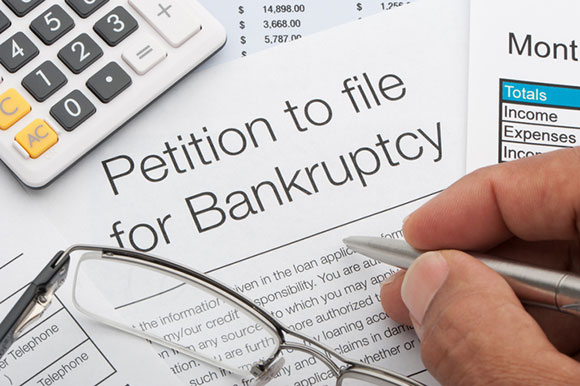The founder and former CEO of Faraday Future, Jia Yueting, filed for Chapter 11 bankruptcy in a Delaware court in an attempt to tackle his long list of debts in his home country: China. The mega-wealthy businessman owes over $3 billion to 100+ creditors. His company, Faraday Future, is an American startup company focusing on the production of electric vehicles.
This situation shouldn’t come as a surprise to anyone who has been following Yueting’s rise to power; he was officially placed on a “national debtor blacklist” in China several years ago, which prompted his move to the United States in 2017.

A Tentative Plan to Satisfy the Debts
Prior to moving forward with his bankruptcy filing in Delaware, Yueting offered to satisfy his debts through a trust. The trust is backed via his ownership shares in Faraday Future. A note about this company: it isn’t public yet. Therefore, the trust will only payout to creditors IF the startup goes public. Creditors must agree to this plan; otherwise, it is unlikely Faraday will be able to come up with the funds to pay off creditors, and Chapter 11 filings will need to proceed.
Yueting requires 90% of the people or business entities to whom he owes money to agree to the restructuring plan by November 8th. If they agree to the plan, they are also agreeing to release Yueting and his spouse from all personal liability – including dropping existing claims against them.
A Plan for Chapter 11 Bankruptcy
If Chapter 11 filings do move forward, Yueting is proposing a similar plan to the one involving the trust; he will leverage his stake in Faraday to (hopefully, eventually) pay off his debts after an IPO. The difference in taking this route is that there will be more oversight and involvement from the court. Yueting warns that this could ultimately cost everyone more in the end.
Avoiding Chapter 7 Bankruptcy & Full Asset Liquidation
In his filings, Yueting also warns that any delay could put this entire plan (both options) at risk. His lawyers state that Yueting’s creditors must come to a swift agreement. And, if neither plan is approved by creditors, Yueting warns he may have to declare a Chapter 7 bankruptcy and fully liquidate all of his assets; this would result in much smaller payments to the people and businesses he owes money to, and it would affect Faraday Future’s ability to move forward.
Faraday Future Troubled From the Start
When Yueting’s troubled startup began in 2018 with an $800 million investment from a Chinese real estate conglomerate called Evergrande, it posted a loss of $477 million for the year of 2018. Up through July 31st of 2019, Faraday Future lost an additional $103 million and owed $159 million in accounts payable. The total liabilities came to over $800 million by July 31st; there was only $6.8 million in Faraday’s bank account. Since its foundation, the company has lost over $2 billion.
The bankruptcy filings also provide a window into Faraday Future’s finances for the last year and a half. While the troubled EV startup began in 2018 with an $800 million injection from Chinese real estate conglomerate Evergrande, it ultimately posted a loss of $477 million for 2018. Through July 31st, 2019, Faraday Future lost another $103 million and owed $159 million in accounts payable. The company’s total liabilities added up to $801 million on July 31st, and it had just $6.8 million in the bank. Faraday Future has lost $2.15 billion since its founding.
Faraday has been working hand in hand with a restructuring firm, Birch Lake, since March of 2019. The firm even loaned Faraday $15 million in April to help keep the startup functioning. A second loan of $45 million is due by the end of October. Yueting’s company has already requested an extension, according to court filings.
Yueting officially stepped down as CEO in September. He was replaced by Carsten Breitfeld, a former BMW executive who affirmed that Faraday is still trying to get its luxury, electric SUV into production by the end of 2020.





